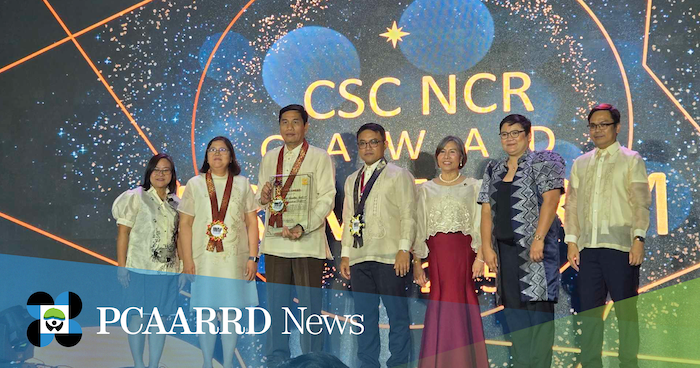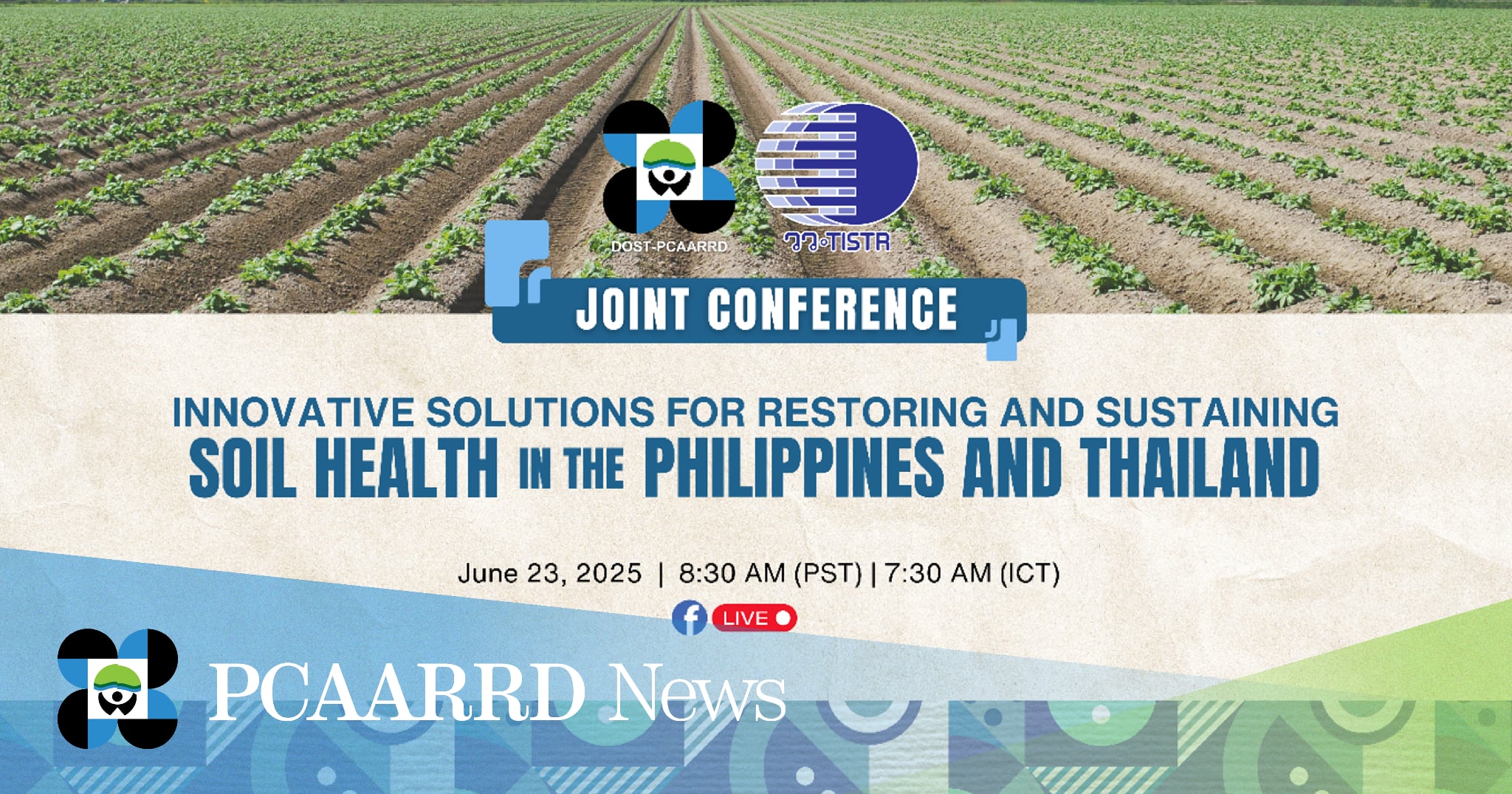The Philippine Council for Agriculture, Aquatic and Natural Resources Research and Development of the Department of Science and Technology (DOST-PCAARRD) was recognized for obtaining Maturity Level II under the enhanced Program to Institutionalize Meritocracy and Excellence in Human Resource Management (PRIME-HRM) on June 17, 2025 at the World Trade Center, Pasay City.
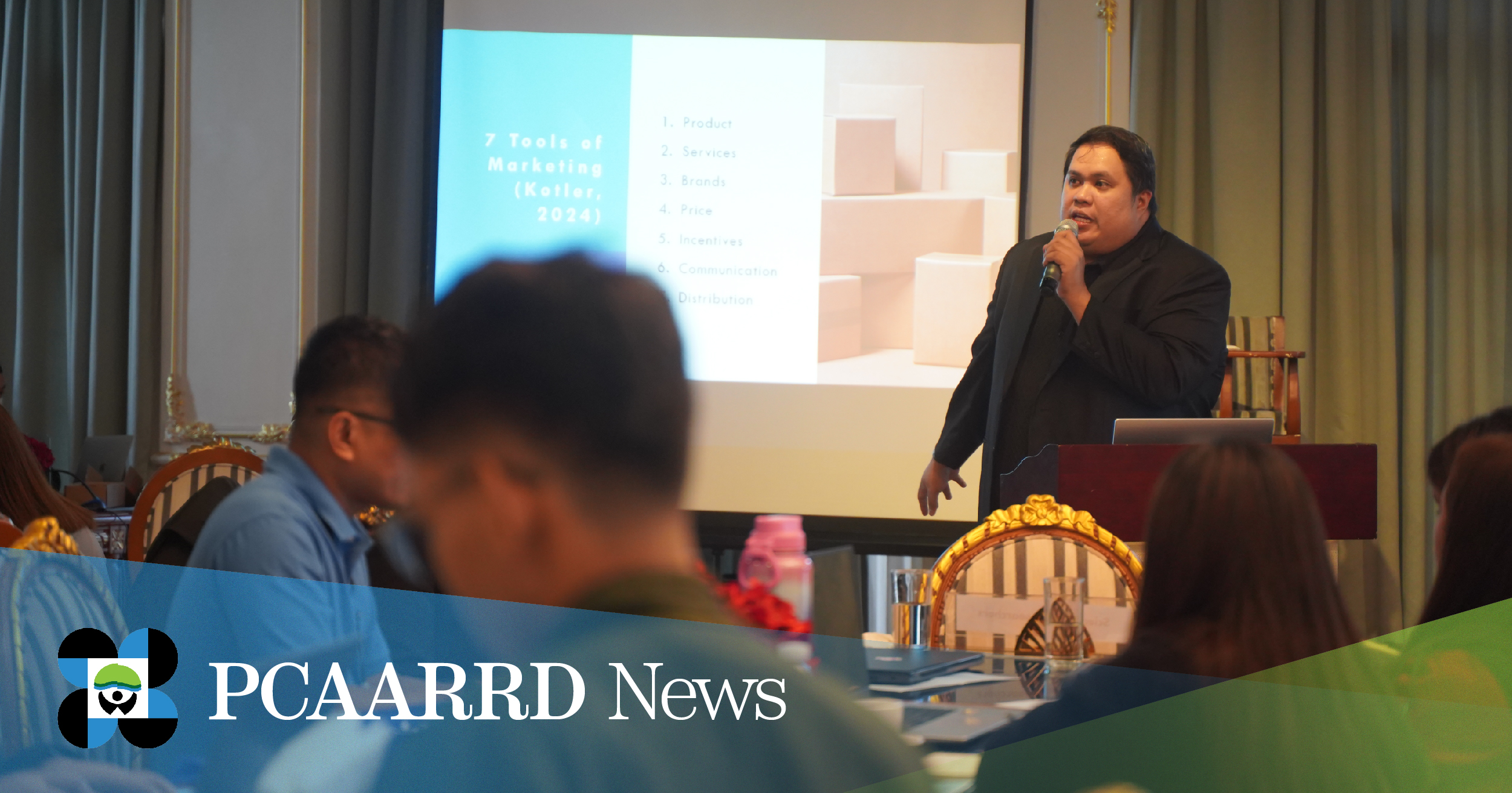
One of the Councils of the Department of Science and Technology (DOST) will soon benefit from the strategic marketing communications approach brought by the practice of integrated marketing communications (IMC).
Regional partners and technical staff members of the DOST-Philippine Council for Agriculture, Aquatic and Natural Resources Research and Development (DOST-PCAARRD) were recently capacitated with knowledge and skills on how to promote research-based technologies and innovations, products, and services using the IMC approach.
Held from May 21 to 23, 2025 in Baguio City, the training, “Mainstreaming Science 2: Creating Relatable IMC Campaign for Your Agri-Aqua Innovations,” capacitated 52 staff members from the Council’s technical research divisions and the science communicators from the 14 regional consortia. The training was organized by the Applied Communication Division (ACD) of DOST-PCAARRD.
Dr. Nelson B. Guillen Jr., a marketing expert and faculty member of the De La Salle University’s Marketing and Advertising department under the Ramon V. del Rosario College of Business served as the main resource person of the training.
Separate lectures from ACD’s experts were also conducted to contextualize the IMC concepts applied in DOST-PCAARRD’s science communication campaigns:
- Mr. Joel Eneristo A. Joven shared PCAARRD’s IMC framework and the importance of unified messaging among various S&T project and promotion activities;
- Mr. Gian Carlo D. Camacho imparted best practices in using social media as a platform to reach a wider audience build online engagement;
- Ms. Rose Anne M. Aya elaborated on the application of IMC in the IMC campaign she developed for Cavite State University’s Don Severino’s Aguinaldo Blend Coffee, and
- Dr. Paul Jersey G. Leron on crafting IMC-based project proposals through the Farms and Industry Encounters through the Science and Technology Agenda (FIESTA™), and other emerging S&T promotion platforms.
Tools and techniques in IMC campaign development were discussed, specifically developing a creative brief, employing urgency marketing techniques, and applying Neuro-Linguistic Programming (NLP) framing.
Following the lecture sessions, participants were grouped based on the client types and audience segments being catered to by DOST-PCAARRD.
A session on “IMC-fying” FIESTA™ was also conducted, where select regional consortia that have conducted cluster FIESTAs during the post-pandemic shared their experiences and best practices. FIESTA™ or Farms and Industry Encounters through the Science and Technology Agenda is DOST-PCAARRD’s technology promotion platform for mature agri-aqua technologies that could lead to technology transfer through commercialization or extension. Technologies that are ready for commercialization are pitched to private investors and MSMEs, while public good technologies are shared to potential adopters such as farmers, fisherfolk, entrepreneurs, and others through exhibitions, demo, and fora.
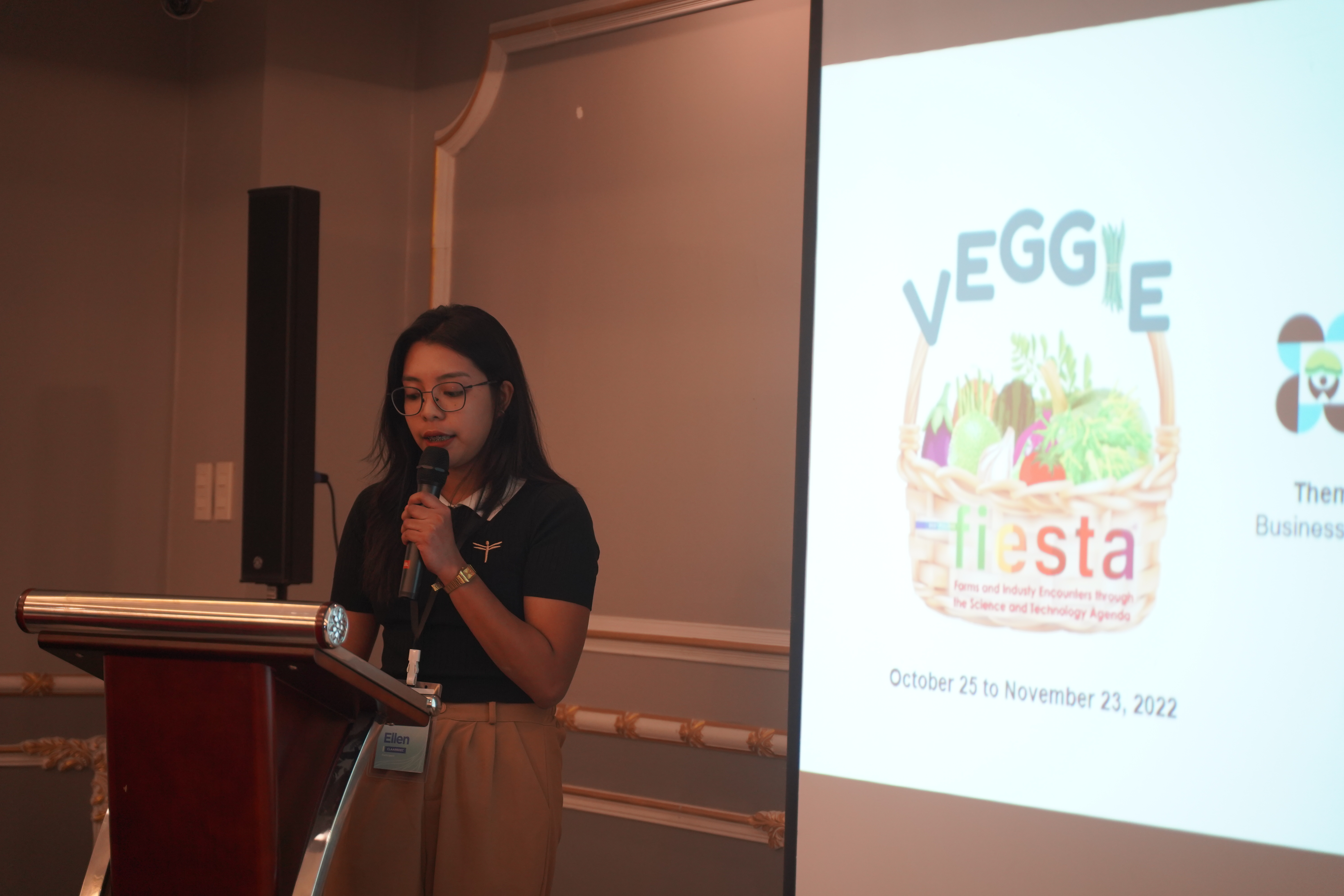
Ms. Ellen Joy Brillo of CLAARRDEC and Ms. Jylyn Cornelio of WESVARRDEC shared their experiences in planning and implementing the Vegetable and Native Chicken FIESTAs on a hybrid setup - a mix of activities held online and face-to-face.
“There’s still a relatively vast area of IMC practices and approaches that we can learn and explore in promoting the various research and development (R&D) results – ranging from products and tools, technologies, innovations, services, and know-how. In this training, we hope to equip our participants with the knowledge and skills in developing IMC campaigns suitable for their respective agri-aqua products and technologies,” said Ms. Marita A. Carlos, ACD Director.
The training was designed for non-marketing professionals to gain knowledge on industry practices in creating cohesive marketing content across platforms. The training also strengthened the participants’ proficiency in crafting campaign strategies that are tailored to the needs and interests of the target audience.
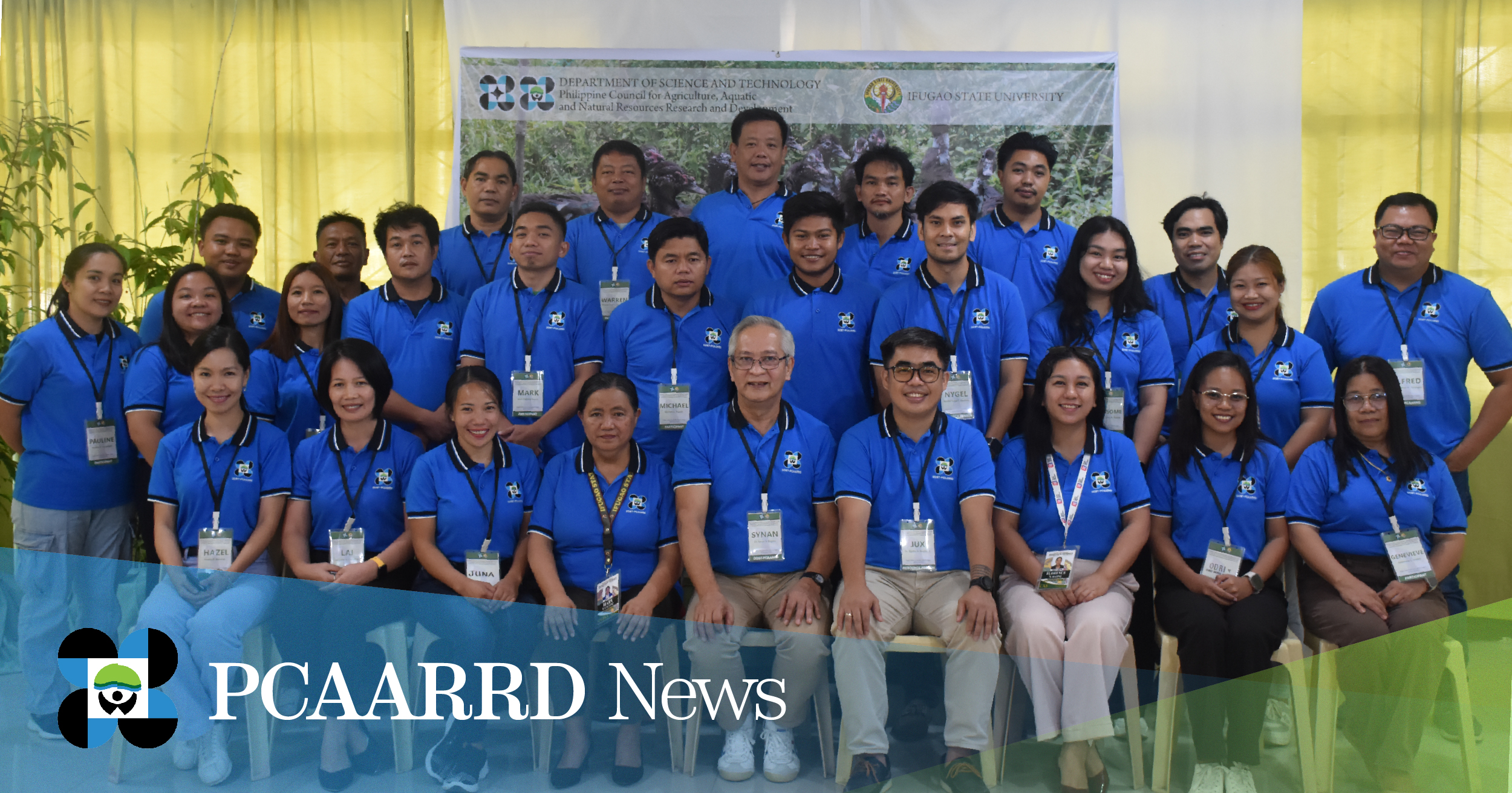
In line with the overall goal of developing the Philippine signature Muscovy Duck breed, a comprehensive training on improving muscovy duck management and production in Ifugao, was organized and implemented from April 22 to 24, 2025 at the Review Center Hall of Ifugao State University (IFSU) Main Campus in Lamut, Ifugao.
The training, “Muscovy Duck Breeder Farm Management for the Sustainable Production of Breeder-Quality Ducks and Continuous Improvement of Production Performance,” aimed to build the capacities of farmers, extension workers, researchers, and other stakeholders involved in Muscovy duck production. They were trained on breeding and selection, hatchery, and farm management to enhance duck productivity and improve flock quality. They were also taught environmentally-sustainable practices to ensure long-term production viability.
This initiative is aligned with the ongoing project, “Development of Philippine Signature Muscovy Duck Breed,” which aims to develop breeding and selection protocols; establish sustainable breeding, production, and distribution systems; and characterize the phenotypic and genotypic traits of the breed that would lead to a profitable breeder and slaughter duck production enterprises. The project is led by IFSU Professor Elpidio B. Basilio, Jr.
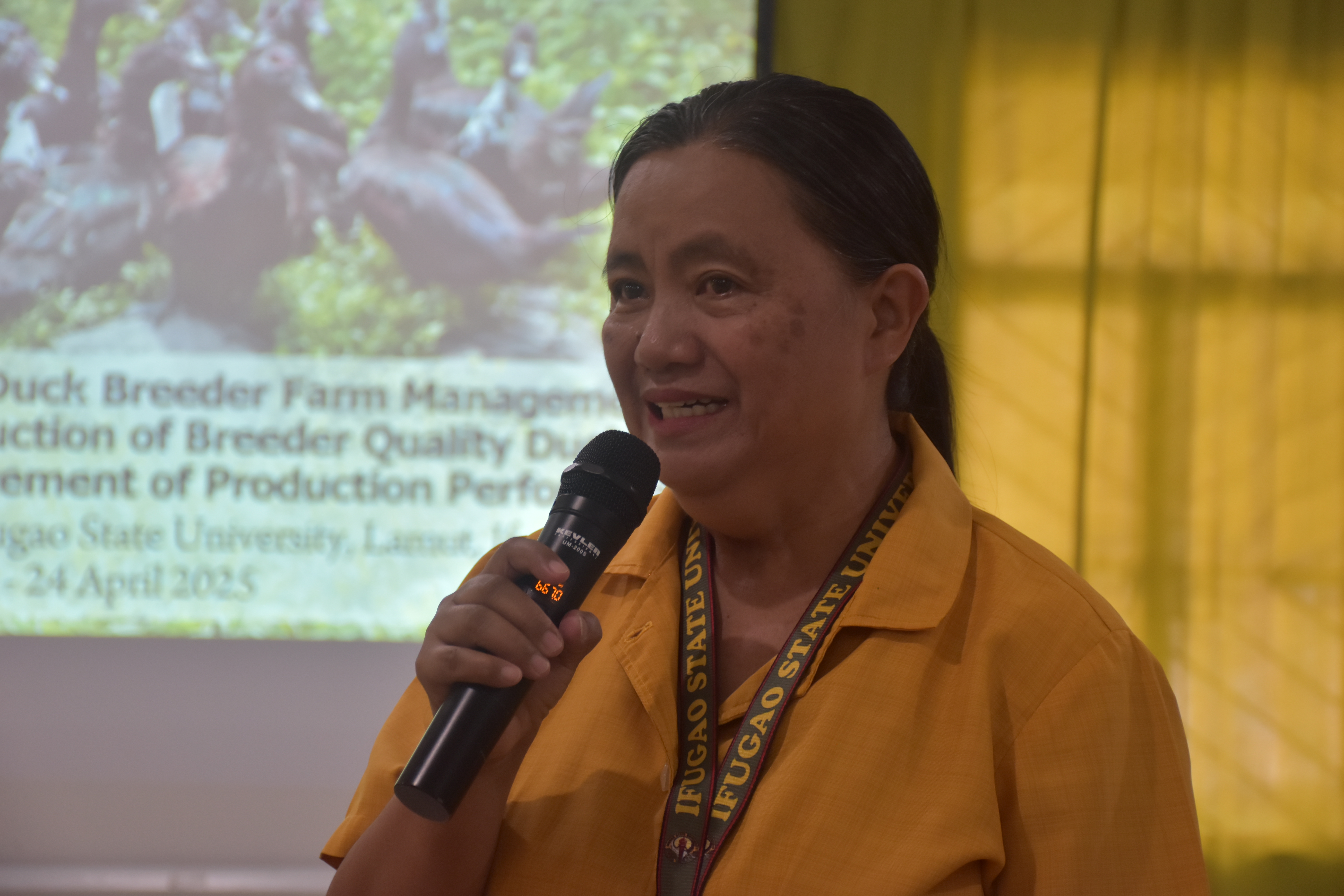
IFSU Vice President for Academic Affairs Mary P. Caclini expressed the university’s full support for the development and improvement of Muscovy duck production not only in Ifugao but also across other regions in Northern Luzon.
Dr. Synan S. Baguio, Director of the Livestock Research Division (LRD) of DOST-PCAARRD led the Council’s training team. With him were the lecturers cum workshop facilitators: Dr. Basilio; Mr. Herald Nygel F. Bautista, University Researcher I at the Institute of Animal Science, University of the Philippines Los Baños (UPLB); LRD’s Industry Strategic S&T Program (ISP) Managers Ronilo O. De Castro, who discussed “Feeds and Feeding Systems for Muscovy Ducks” and Alfredo Ryenel M. Parungao who presented “Muscovy Duck Breed Development and Profitable Utilization.”
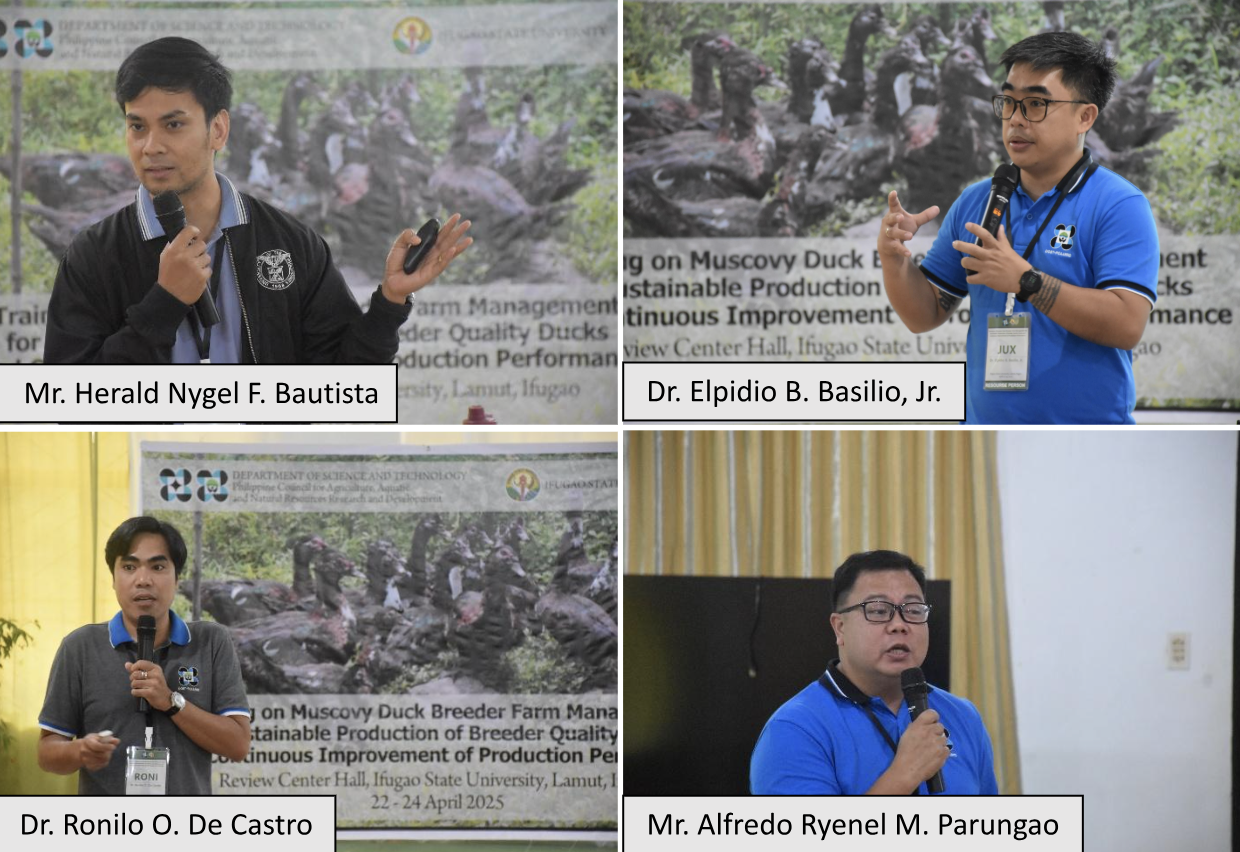
Other key topics covered during the training included: Breeding and Selection of Muscovy Ducks for Continuous Improvement in Production Performance; Muscovy Duck Hatchery Management; Production and Management from Brooding to Laying; and Recording Systems and Performance Evaluation.
A field visit to the Muscovy duck farms owned by two training participants enriched the participants’ knowledge from actual experiences in duck raising and how the enterprise has become a viable source of income for their families.
To further support the participants' breeding and selection efforts, a workshop was conducted where they developed their own breeding objectives tailored to their respective farm enterprises.
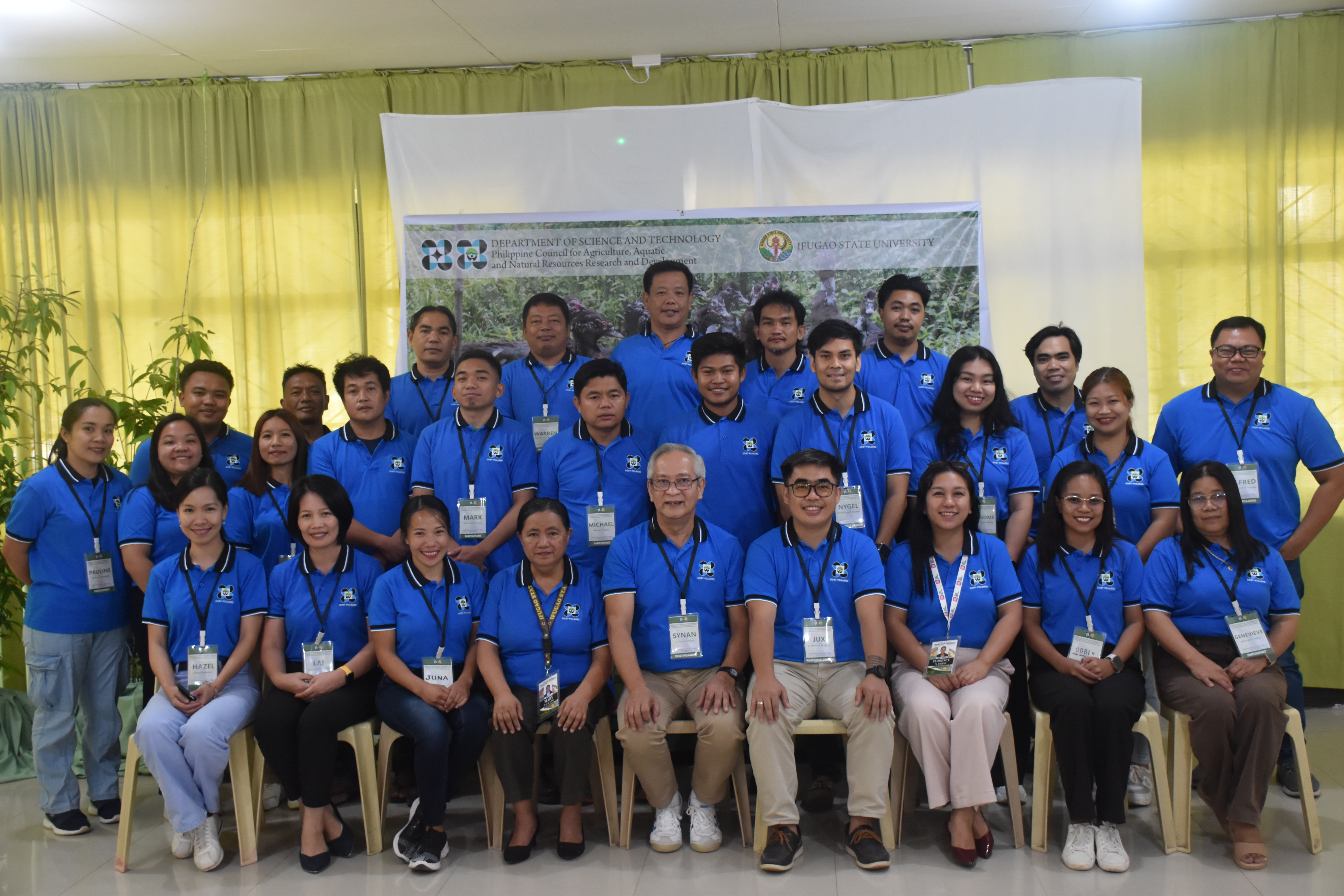
The Philippine Council for Agriculture, Aquatic and Natural Resources Research and Development of the Department of Science and Technology (DOST-PCAARRD), along with IFSU, continues its initiatives to reach its goal of developing the Philippine signature Muscovy duck breed.


To control and neutralize White Spot Syndrome Virus (WSSV) in giant tiger prawn (Penaeus monodon), existing methodologies for local applications, particularly using RNA interference (RNAi), are being explored through a research and development project.
Shrimp production has been one of the major contributors to the country’s aquaculture sector’s economic growth and food security. The White Spot Disease (WSD), caused by WSSV, is a viral contagious disease that causes high mortality in shrimp and leads to major financial losses in the aquaculture industry.
To alleviate the economic effects of WSSV in giant tiger prawn, the project, “Targeting essential genes utilizing RNA interference to mitigate WSSV in tiger shrimp,” is being implemented by the University of Santo Tomas (UST). Funded by the Philippine Council for Agriculture, Aquatic and Natural Resources Research and Development of the Department of Science and Technology (DOST-PCAARRD), the project aims to gain a deeper understanding of host-virus interactions, targeting genes that may play a role in the infectivity or pathogenicity of WSSV.
The project uses RNAi, a proven genetic technique that works by “silencing” specific genes effectively. Gene silencing is a modification process wherein it inactivates previously active individual genes. In this project, researchers are using it to silence key genes in the virus that allow it to spread and cause illness in giant tiger prawn. This is done by introducing double-stranded RNA (dsRNA) that targets those viral genes, preventing them from functioning.
This RNAi-based technology will be developed to prevent the expression of target genes in the WSSV genome to prevent the ability of the virus to multiply and cause disease in giant tiger prawn.

An important part of the project is developing an “in vivo” method to produce these dsRNA molecules directly within living organisms, a step that could significantly boost the Philippines' capacity for biotechnology solutions.
In its first year, the project has already identified three viral genes that show promise as therapeutic targets for laboratory testing.
Throughout its implementation, the project seeks to mark a major step forward in protecting the livelihood of shrimp farmers and securing the future of the country’s shrimp aquaculture industry.
- Project utilizes nuclear science to assess toxic algae threat in Laguna Lake
- DOST-PCAARRD highlights women’s leadership and innovation at WELA 2025
- PSHS main campus launches technology transfer and licensing office to strengthen innovation utilization
- DOST-PCAARRD-supported Technology Business Incubator unveiled at the Pampanga State Agricultural University

